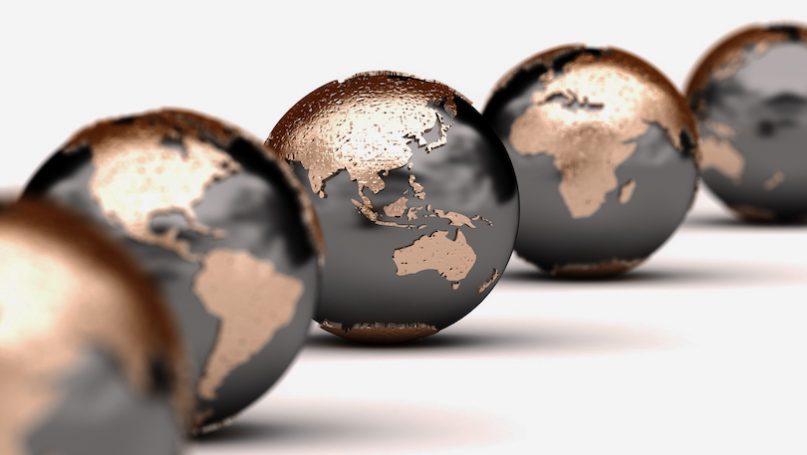
This feature is part of the online resources to accompany the textbook Foundations of International Relations.
The study of International Relations is growing rapidly in universities outside the West, especially in large states such as China, India, Turkey, Brazil and Indonesia. However, the subject is primarily taught by drawing on examples from the history of Western Europe and the United States. For instance, nation-states are considered the basic form of political organisation because that is how society came to be organised in Europe post-1648, before that system spread to the rest of the world. For reasons such as this, despite its increasing geographical spread, International Relations is not yet a truly global discipline that captures the full range of ideas, histories and experiences of both Western and non-Western societies. It often neglects experiences and relationships in the non-Western world, or as we now refer to it, the Global South.
The multimedia and textual resources below expand the range of historical sources for understanding state behaviour beyond Europe and the Americas to the whole world, adding another perspective to International Relations’ journey through history. They look across all forms of political organisation, including the idea of different civilisations. Adopting this broader perspective allows us to highlight the role and contributions of non-Western peoples through history in shaping our global system, which in turn shapes how we think about International Relations. These observations all require more learning about the Global South’s contributions and how these could shape a world order that is likely to be truly different from those of the past.
Text adapted from Mathur, Sahil and Amitav Acharya, ‘Towards Global International Relations’. In, McGlinchey, Stephen. 2022. Foundations of International Relations. London: Bloomsbury.
Additional resources
The China History Podcast – almost 300 episodes of curated topics from China’s antiquity to modern times.
IMF data mapper – Options to create interactive maps showing all sorts of economic data, e.g. GDP annual growth and trends for all countries worldwide or capital flows in developing economies.
Islamic Civilisation – The Islamic Civilisation’s lasting impact on cultures and sciences worldwide.
Belt and Road Tracker – This tracker shows how the Belt and Road Initiative has changed countries’ bilateral economic relationships with China over time.
Indian Ocean Trade Routes – An overview of trade on the Indian Ocean since the 3rd/4th century BCE.
The Pan-African Congresses, 1900-1945 – Article.
Mapping China’s Growing Trade Power – Infographic.
Perspectives on IR theory: Asian Perspectives and Global South Perspectives – Articles.